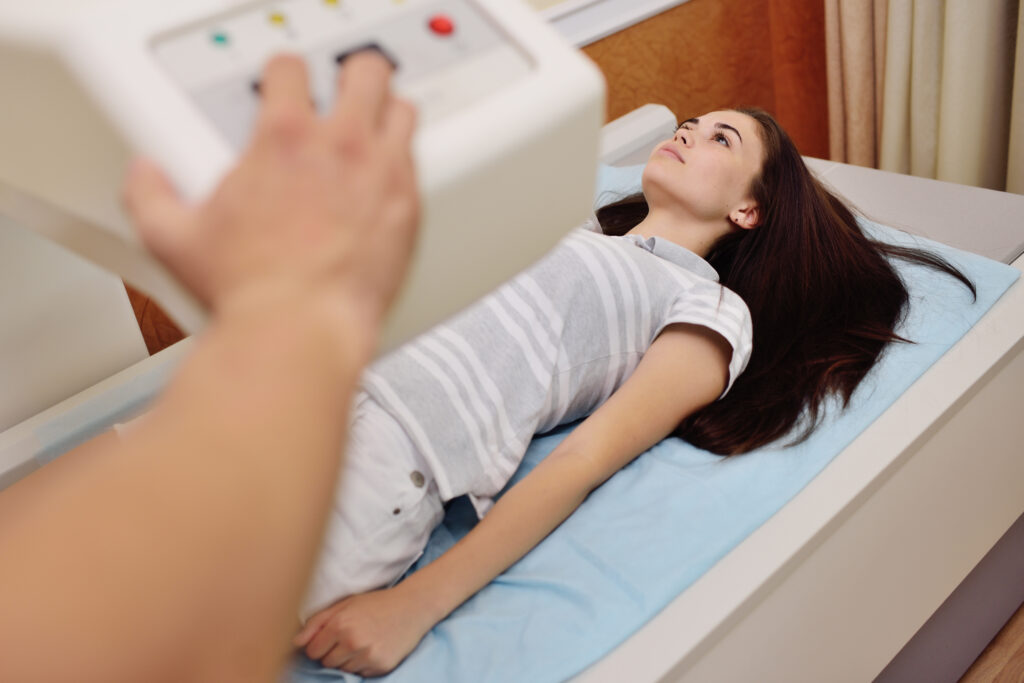“I’m Too Young for a DEXA Scan” — and Other Risky Misconceptions
When most people hear the term “bone density test,” they tend to picture someone older, perhaps already dealing with a fracture or an osteoporosis diagnosis. But bone health isn’t just a concern for seniors. In reality, many Canadians under 50 are living with undiagnosed low bone density, and the risks of ignoring it are real.
At our DEXA scan clinic in Kelowna, BC, we frequently hear people say, “I thought I was too young for this.” It’s a common misconception—and one that can lead to missed opportunities for early intervention. Let’s explore some of the most persistent myths about bone density scans and the facts that should replace them.
Myth #1: “I’m Too Young to Worry About Bone Health”
Peak bone mass is typically reached by your early 30s. After that point, bone density gradually declines. If bone loss outpaces bone formation—especially without early detection—you may not know until a fracture occurs from something as simple as a minor fall or bump.
Take the one-minute Bone Health test now to find out about your bone health
While osteoporosis is more often diagnosed later in life, the foundation for strong bones is built much earlier. Many people in their 30s and 40s are already experiencing bone loss without any obvious symptoms. A DEXA scan provides a safe and accurate look at your bone density, helping you take action before issues become serious.
2 Myth #2: “I Eat Well and Exercise, So My Bones Must Be Fine”
A healthy diet and regular exercise are key to good bone health. But lifestyle alone doesn’t always protect against bone loss. Risk factors like family history, hormone imbalances, autoimmune disorders, digestive conditions, and certain medications can all affect bone strength—sometimes in ways you can’t see or feel.
Even high-performing athletes, particularly women, may be at risk of low bone density due to hormonal changes or inadequate nutrition. This is especially true in cases of the female athlete triad, a condition that can silently weaken bones despite strong outward fitness.
Myth #3: “Bone Density Tests Are Only for Women”
While osteoporosis is more common in women, men aren’t immune. In fact, about one in five men over 50 will experience a fracture related to low bone density. The problem is, men are less likely to be screened or treated until after a serious injury.
Men with low testosterone, chronic illnesses, or long-term use of certain medications may be especially vulnerable. Early detection matters for everyone—not just women.
Myth #4: “DEXA Scans Are Complicated or Uncomfortable”
A DEXA scan is one of the simplest and most comfortable diagnostic tools available. It typically takes around 15 to 20 minutes, is completely painless, and requires no special preparation. You’ll lie flat on a padded table while a scanner passes over your lower spine and hips. There are no needles, no injections, and no downtime.
Radiation exposure is minimal—less than what you’d get from a standard chest X-ray—and the results offer clear insight into your bone health, allowing your healthcare provider to make informed recommendations.
When Should You Consider a Bone Density Test?
You don’t need to wait for a fracture or a referral to start caring for your bone health. A DEXA scan may be appropriate if:
- You’ve had an unexpected fracture
- You’re experiencing early menopause or irregular periods
- You have a family history of osteoporosis
- You’re taking medications that may affect bone strength, such as corticosteroids or certain antidepressants
- You’ve been diagnosed with an autoimmune, digestive, or endocrine disorder
- You’ve noticed loss of height or a change in posture
Bone loss often happens quietly. By the time symptoms show up, the damage may already be significant. A DXA scan now can help you make small changes that protect your long-term health.

Don’t Wait Until It’s Too Late
Your bones do a lot more than hold you upright—they support your strength, mobility, and independence. Knowing where you stand today gives you the power to act before problems develop. At our clinic, we’re here to help Canadians take charge of their bone health at every stage of life.
Book your DEXA scan from Dexacan today and get clear answers that support a stronger tomorrow.



